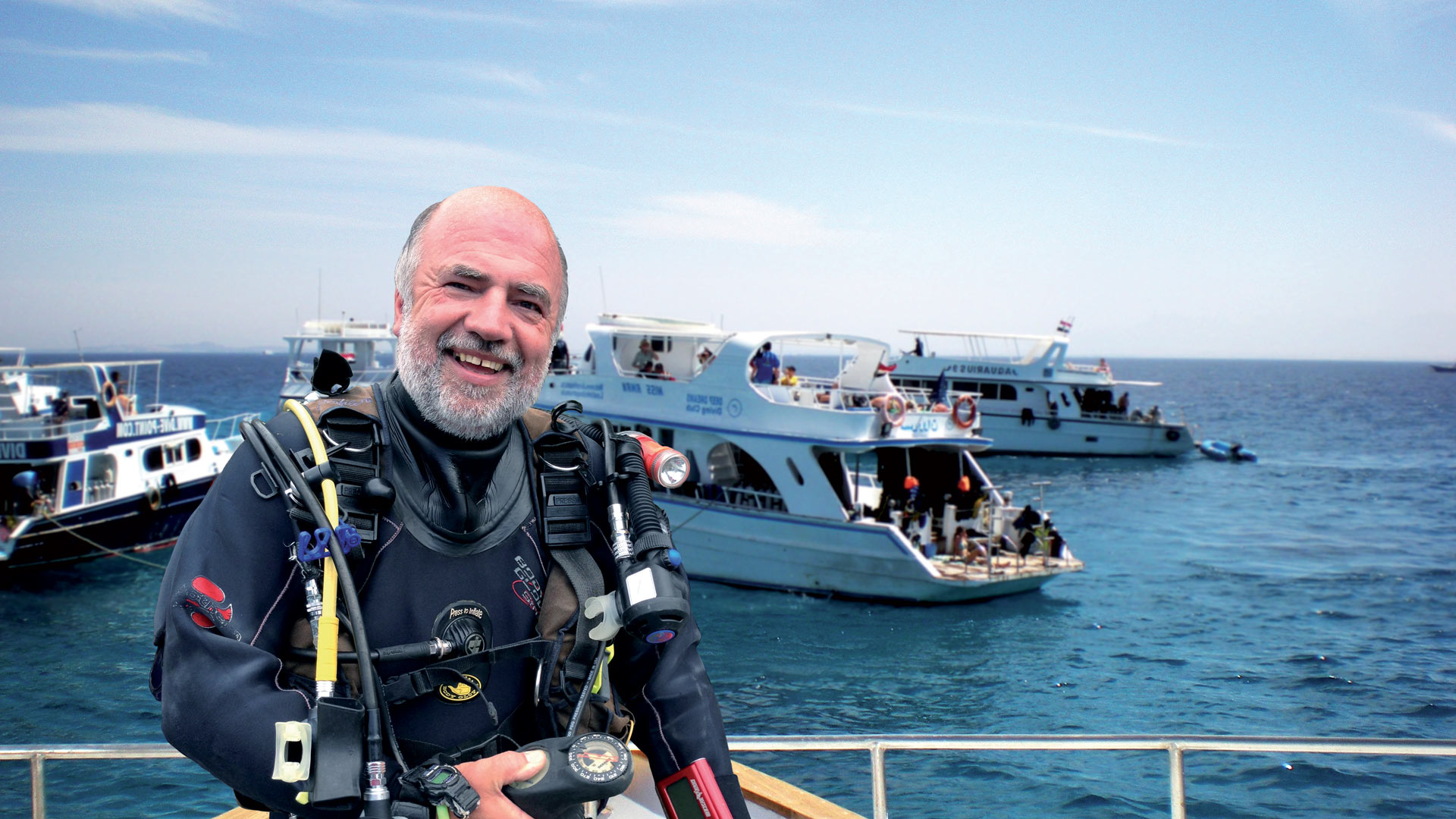
Nowadays there are more divers at a higher age. They are eager to savour their active time as a diver as intensively as possible.
Their well-chosen dive locations often lead them to the tropics and subtropics for long periods of time. There are also more divers at a higher age, not only on diving safaris. We know that older divers rather look for enjoyment than adventure. They also dive more safely, because they are more cautious and usually very experienced. They are also more willing to act responsibly and accept restrictions regarding their diving activities in case of physical limitations.
With aging, more chronic diseases can be associated, which often leads to permanent medication. The medication must be compatible with diving. This also applies to medical aids and medical devices such as pacemakers.
Here, advice from the diving doctor is required. While examining the fitness to dive he must consider typical age-related limitations to it.
- Reduced physical fitness
- Reduced strength and endurance
- Altered lung function
- Increased reaction times
- Reduced cold resistance
Already immersion itself can trigger certain physical reactions. This can have an unfavourable effect especially on older divers.
- Fluid shift into the body core
- Constriction of the blood vessels of the skin
- Significant increase of urine excretion
The inevitable consequences of these immersion effects are significant fluid loss. In the elderly, this can have a particularly unfavourable effect, because they often tend to drink less anyway. Especially in summer or in (sub) tropical climates dehydration can quickly occur and cause serious diving accidents. “Thick blood” cannot properly contribute to removal (elimination) of inert gas. These immersion effects are especially risky for the cardiovascular system. The fluid shift into the centre of the body forces the heart to suddenly pump more. If skin circulation is reduced as well, the heart has to work against an even higher resistance.
Possible direct consequences are:
- acute hypertension
- circulatory disorders of the heart
- triggering cardiac arrhythmias
- acute breathlessness
Not only pre-existing heart disease may lead to serious health situations in or underwater but also increased risk of drowning as well as sudden cardiac death exist.
The burden of swimming underwater is surprisingly high. This is due to the depth-dependent increased breathing gas density. The changes in the respiratory mechanics will allow for already existing health restrictions of the respiratory organs to manifest themselves suddenly. Even in experienced divers, usually less than 5% of the body energy will go to the fin. The limiting factor is the respiratory mechanics. It can quickly get out of hand with overexertion.
During the medical check-up of older divers the examining diving doctor will therefore focus primarily on the function diagnostics of both cardiovascular and respiratory system, and thereby assess physical exercise capacity and endurance as well as check muscle and skeletal system. The aim is the profound advice under which conditions a diver with age-related limitations can still dive safely.

- choose shorter and shallower dives
- respect safety stops and use slow ascent rates
- reduce repetitive dives
- use Nitrox instead of air as breathing gas

Do suitable age-adapted sports activities with focus on endurance and muscle strength

Sufficient hydration before diving.
TIP: good salivation is a sign of fluid balance

- Don’t challenge your physical performance limits intentionally
- Avoid stress by diving relaxed

Slide into the water to minimize the acute immersion effects
The individual cold protection should be designed that even a slight chill is avoided
It is the biological age that counts, not the actual age.
Starting at the age of 40 the annual medical examination for diving fitness should be more thorough and even more focused on the "older diver" beyond the age of 55.
Your body will tell you. The actual age is not decisive.
When it comes to health, when the body sends its own signals that diving feels burdensome or staying underwater feels unpleasant, then the time has come to reconsider.
Not necessarily. However, they can significantly reduce their risk of decompression illness by proper hydration before diving.
Changes in the lungs at a higher age theoretically increase the risk. This risk can be reduced by ascending slowly and the use of safety stops.
